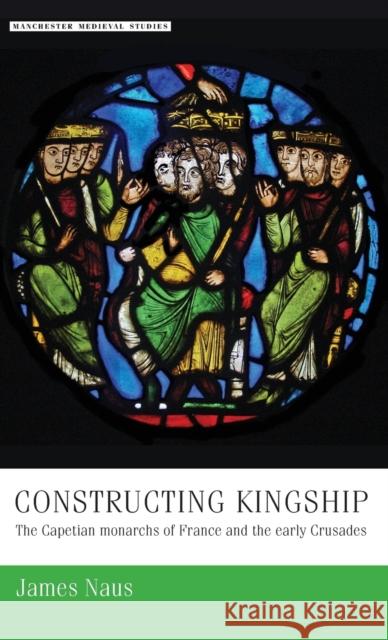Constructing Kingship: The Capetian Monarchs of France and the Early Crusades » książka
Constructing Kingship: The Capetian Monarchs of France and the Early Crusades
ISBN-13: 9780719090974 / Angielski / Twarda / 2016 / 180 str.
Constructing Kingship: The Capetian Monarchs of France and the Early Crusades
ISBN-13: 9780719090974 / Angielski / Twarda / 2016 / 180 str.
(netto: 414,80 VAT: 5%)
Najniższa cena z 30 dni: 431,97
ok. 30 dni roboczych
Bez gwarancji dostawy przed świętami
Darmowa dostawa!
Constructing kingship breaks new ground by examining and contextualizing the role of the crusades in the growth and development of the French monarchy in the Central Middle Ages. It considers the challenge to political authority that confronted the French kings and their family members as a result of their failure to join the early crusades and their less than impressive involvement in later ones. Crusading kings such as Louis IX of France and Richard I of England exert a unique hold on our historical imagination; it is easy to forget that European rulers were not always eager participants in holy war. The First Crusade was launched in 1095 and yet the first monarch did not join the movement until 1146, when the French king Louis VII took the cross to lead the Second Crusade. What impact did fifty years of non-participation in something that one contemporary compared to 'Creation and man's redemption on the cross' have on the image and practice of European kingship and the parameters of cultural development? Drawing together hitherto independent scholars traditions involving power structures, feudal relations, monarchy and ritual performance, Constructing kingship considers this question and argues that members of the French royal court engaged with the crusading movement in a variety of media, including texts, artwork, architecture and rituals. In a relatively short time, members of the court fused emerging crusade ideas with ancient notions of sacred kingship and nobility to create new, highly selective and flexible images of French history. Such images exploited the unknown future of crusading to create a space into which the self-fashioning of French kingship could insinuate itself. By the middle of the twelfth century, these negotiated images of crusading kingship were being widely disseminated to a popular audience, contributing to the rise of the 'crusader king' as an ideal ruler-type from the early thirteenth century onwards. Making an important interdisciplinary contribution to medieval scholarship, Constructing kingship will appeal to students and academics in crusades history and medieval political history.











